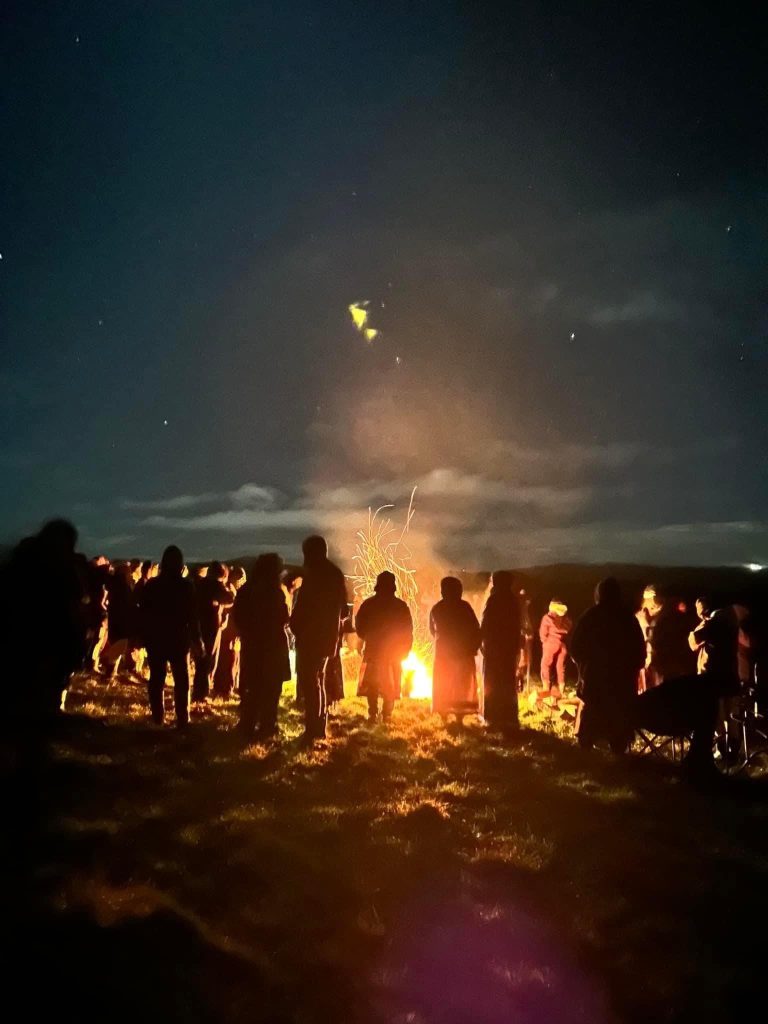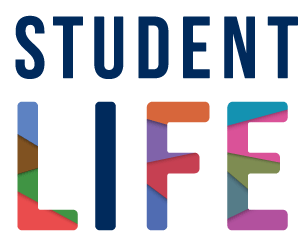Posted on September 4, 2024
From June 21 – July 7, 2024, First Nations House and Centre for International Experience, partnered with Education New Zealand Manapou ki te Ao and Ngāti Rangi (South Ruapehu) iwi and Whenua Iti.
This visit included a week-long stay at the Tirorangi Marae at the base of Mount Ruapehu to enhance cross-cultural understanding between Māori and First Nations people, Métis and Inuit peoples. The visit involved participating in a range of activities while staying at the marae such as the sharing of Puanganui-o-te-rangi (Rigel the star), Waiata o Ngāti Rangi (Songs) and Raranga Harakeke (Flax Weaving).
The group was then welcomed by the ENZ Wellington office, visiting Te Tiriti o Waitangi and Te Herenga Waka — Victoria University of Wellington before finishing their trip in Whakatū (Nelson) with some adventure tourism activities that included Waka at Kaiteretere Beach and visiting the Brook Waimārama Sanctuary.
This first Indigenous-to-Indigenous international engagement supports the U of T Truth and Reconciliation Call to Action #4 Indigenous Research Ethics and Community Relationships, “to fostering respectful relationships with Indigenous communities.” Most importantly, investing in education that is designed for Indigenous peoples by Indigenous peoples.
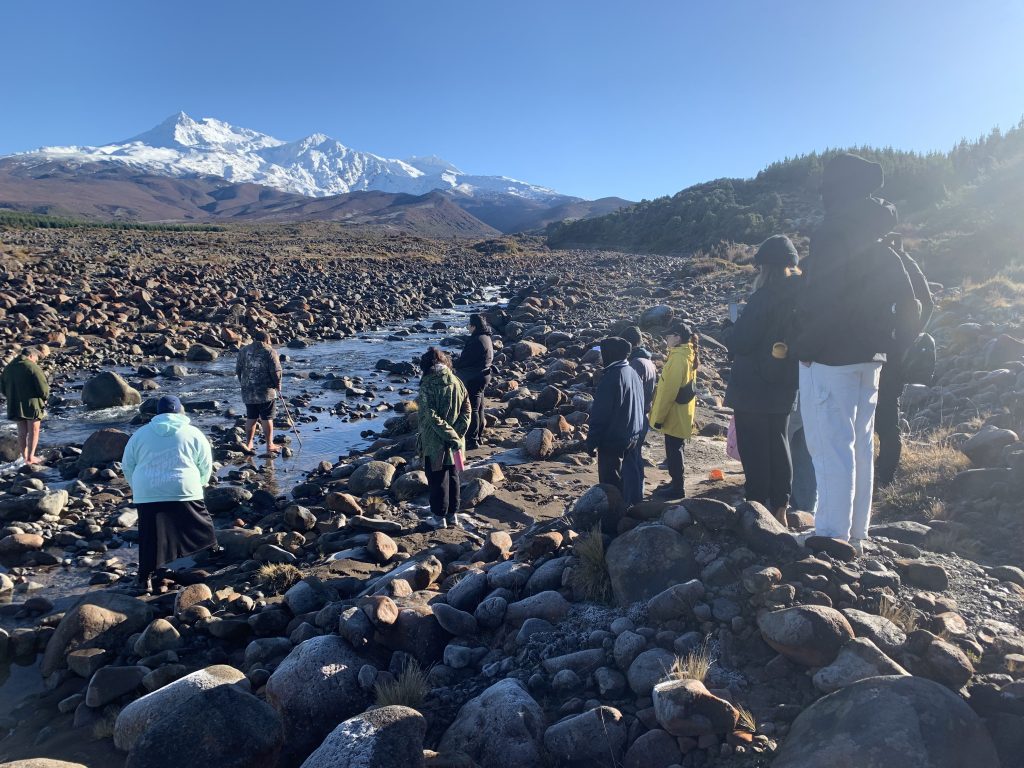
In doing this, our New Zealand partners have facilitated an authentic experience for our First Nations House cohort with living on the marae and being immersed with how a tribe engages with the environment, how iwi businesses, local council and government agencies such as the Department of Conservation (DOC) operate in the field with iwi partnership.
During the visit, Māori and First Nations people were able to compare the similarities and differences of their contexts to grow understanding of their respective challenges and successes. The sharing of our cohort’s struggles with overcoming racism and prejudice resonated with tāngata whenua, in particular the intentional elimination of language and the current mechanisms of revitalization.
Many stories shared together show the everyday trauma that resides in each of us and how, as Indigenous people, we try to navigate these obstacles to make a better world for the next generation.
The trips impact on the student attendees was deeply empowering.
“My experience connecting with the Ngati Rangi revealed the transformative power of global Indigenous connections. Participating in ceremonies such as Hautapu and visiting Mount Ruapehu was particularly moving. Listening to their stories of ancestral ties to the land and taking part in traditional ceremonies that emphasized community and connection to the environment deepened my own personal understanding. This experience inspired me to initiate conversations with elders in my own community about our traditional land management practices.”
Indigenous Cohort Participant, Katherine Getler
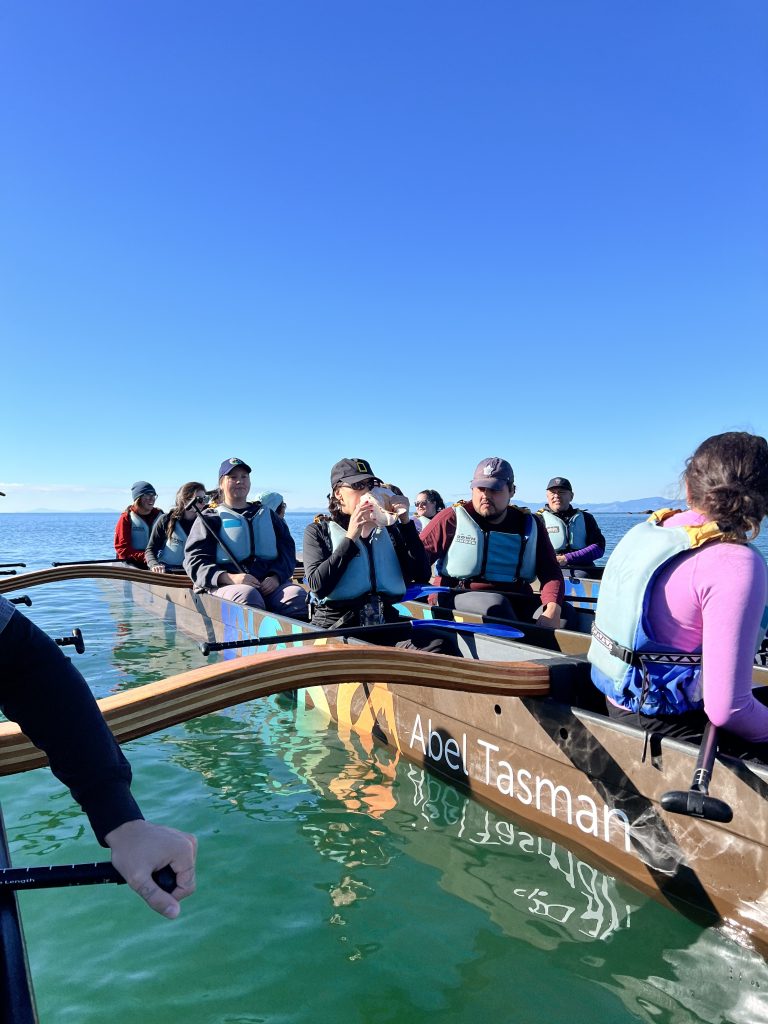
“I think it is important for other Indigenous youth to seek out such transformative cross-cultural experiences, and I urge educational institutions to support such initiatives. These connections across Indigenous nations are crucial for our collective healing and the preservation of our cultures and lands. Future trips that facilitate these global Indigenous connections promote cultural preservation, environmental stewardship, and social justice, providing invaluable opportunities for collaboration and advocacy on both global and local stages.”
Indigenous Cohort Participant
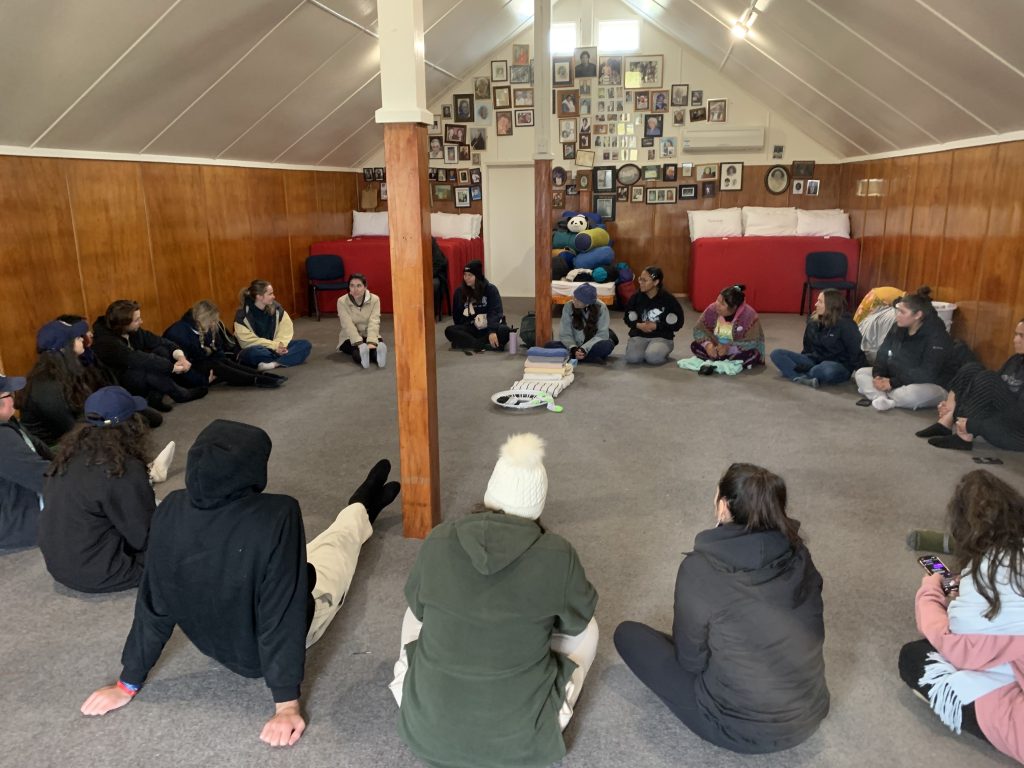
This experience also highlights the important offerings that Māori, and indeed Indigenous knowledge, has to offer to international education. In particular, and not exclusively, the deep connection that Indigenous peoples have with the environment and therefore natural obligation of care.
There have been discussions between ENZ Manapou ki te Ao, Ngāti Rangi iwi, and the University of Toronto to work on establishing an ongoing relationship and consider what a reciprocal engagement might look like moving forward in the future.
